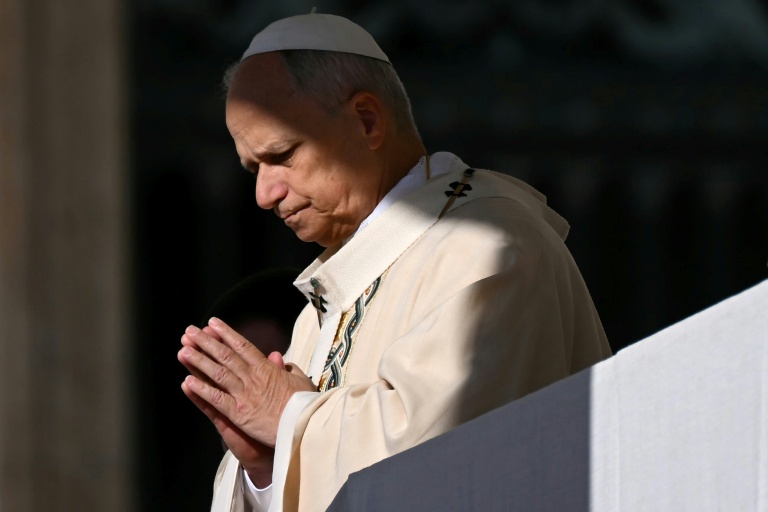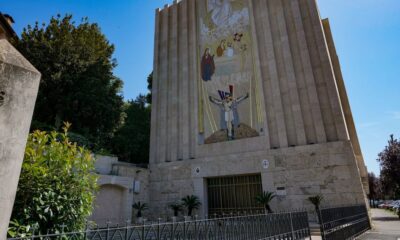World
Pope Leo XIV Beatifies 11 Priests Martyred by Totalitarian Regimes

Pope Leo XIV has approved the beatification of eleven priests who were killed due to their faith during the oppressive regimes of the Nazis and Communists in Europe during the 1940s and 1950s. This decision marks a significant step toward sainthood for these individuals, who are recognized as martyrs for their unwavering commitment to their Catholic beliefs.
Among those beatified are Jan Swierc and eight other Polish Salesian priests who lost their lives between 1941 and 1942 in notorious Nazi concentration camps, including Auschwitz and Dachau. A statement from the Vatican indicated that these priests were targeted “out of hatred for the faith” and were arrested solely for being Catholic clergy. The Holy See emphasized the unique brutality faced by Polish priests, noting that they were subjected to mockery, torture, and ultimately death or suffering from the harsh conditions of imprisonment.
In addition to the Polish priests, the pope recognized Jan Bula and Vaclav Drbola, diocesan priests executed in Jihlava, in the former Czechoslovakia between 1951 and 1952. According to Vatican News, both were deemed dangerous by the Communist authorities established in Czechoslovakia after 1948 due to their pastoral zeal. Bula was accused of instigating an attack that resulted in the deaths of several Communist officials; he was sentenced to death and hanged. Drbola faced similar accusations, despite being incarcerated at the time of the attack, and was also executed after being coerced into signing false confessions.
The Catholic Church outlines a three-step process toward sainthood, beginning with a declaration of “venerable,” followed by beatification, and ultimately canonization as a saint. Typically, for beatification, a miracle attributed to the individual’s intercession is required. However, those declared martyrs can be beatified without this prerequisite. To achieve canonization, a second miracle is necessary.
This recent beatification reflects the Church’s recognition of the sacrifices made by these individuals during a dark chapter in European history, underscoring the impact of totalitarian regimes on religious figures. The honor serves not only to commemorate their unwavering faith but also to highlight the broader historical context of oppression faced by religious communities during the 20th century.
As the Catholic Church continues to acknowledge the legacy of these priests, their stories serve as poignant reminders of the resilience of faith amid persecution.
-

 World3 months ago
World3 months agoScientists Unearth Ancient Antarctic Ice to Unlock Climate Secrets
-

 Entertainment3 months ago
Entertainment3 months agoTrump and McCormick to Announce $70 Billion Energy Investments
-

 Lifestyle3 months ago
Lifestyle3 months agoTransLink Launches Food Truck Program to Boost Revenue in Vancouver
-

 Science3 months ago
Science3 months agoFour Astronauts Return to Earth After International Space Station Mission
-

 Technology2 months ago
Technology2 months agoApple Notes Enhances Functionality with Markdown Support in macOS 26
-

 Top Stories2 weeks ago
Top Stories2 weeks agoUrgent Update: Fatal Crash on Highway 99 Claims Life of Pitt Meadows Man
-

 Sports3 months ago
Sports3 months agoSearch Underway for Missing Hunter Amid Hokkaido Bear Emergency
-

 Politics3 months ago
Politics3 months agoUkrainian Tennis Star Elina Svitolina Faces Death Threats Online
-

 Technology3 months ago
Technology3 months agoFrosthaven Launches Early Access on July 31, 2025
-

 Politics3 months ago
Politics3 months agoCarney Engages First Nations Leaders at Development Law Summit
-

 Entertainment3 months ago
Entertainment3 months agoCalgary Theatre Troupe Revives Magic at Winnipeg Fringe Festival
-

 Politics2 weeks ago
Politics2 weeks agoShutdown Reflects Democratic Struggles Amid Economic Concerns





















